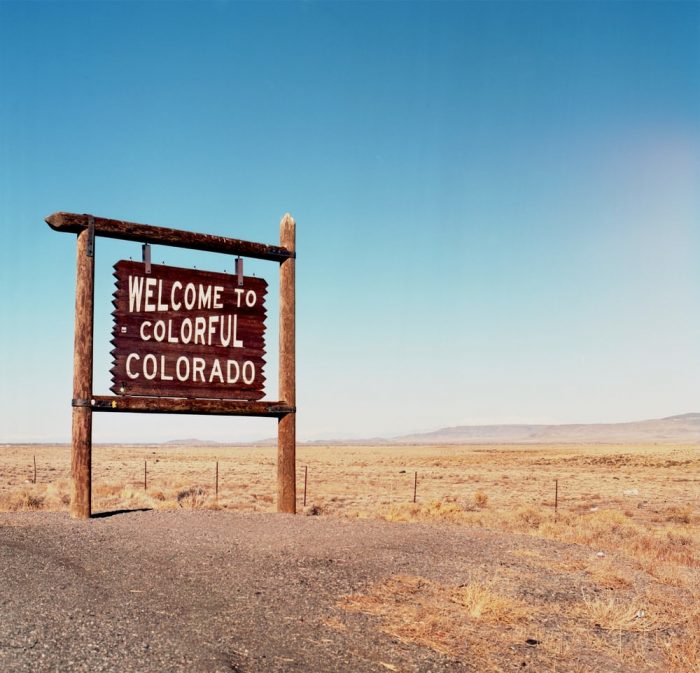We mountain town locals struggle with how to present this without offending.
So, instead I’m going to accept that I may offend, and hope that despite being offended, you can read this and understand the sincerity without any judgement, the plea without any hierarchy.
COVID-19 affects every community.
This includes those living in the cities, as well as those living in the mountains.
The difference is: small mountain towns such as Salida and Buena Vista in Colorado, and the wild land surrounding them, do not have the infrastructure to support a wide pandemic. Our hospitals have only a handful of ICU beds, and even further limited medical staff. Our small, local businesses—which normally are the pride of our town—cannot withstand a period of closures like the larger corporations can. They must be open in order to survive. In order to live in the place their owners have lived for years, they must have patrons. And in order to have patrons, the numbers of the COVID-19 outbreak must be controlled.
It’s not that we don’t want you here.
To be sure—your financial support is what enables our towns to thrive. We need your business. Beyond that, we understand that this wild land is healing. This land brought us here in the first place, to build our homes and make our livelihood and raise our children here, amidst the towering mountains and gurgling snowmelt river.
But our land is coughing.
We are not a resource to be run dry when the rest of the country needs an escape. Please understand—we were here before the pandemic, and we will be here after the pandemic. We are a community, one that pays taxes and puts real blood, sweat, and tears into both our town and the surrounding, protected land.
Please help us protect it.
I put out a call via Facebook, asking for input from Salida and Buena Vista small business owners and conservationists.
The question:
“What do you wish COVID tourists could contribute to your community to make the exchange sustainable for the town and the wild lands surrounding it?”
This was what was offered:
In town:
“For small weddings and events, please ask your guests to practice social distancing during their visit to the town. It is your decision to risk a get-together of more than 5-10 people, but the rest of the town has not been in on that decision, so please keep the bugs within your group. Don’t go out to eat, bring your own groceries, and don’t expose yourself to the rest of the locals.”
“Wear a mask whenever you will be around people. This includes quick grocery store and gas station runs.”
“Use hand sanitizer both before and after entering any establishment—a shop, gas station, grocery store, etc. The sanitizer before going in protects the town. The sanitizer going out protects you. Both are needed.”
“Keep dogs on leashes, where required. Pick up after your dog. Respect the speed limits in town and in the county.”
“First of all, I am pro-tourism and believe that we need tourists to help our economy. But I really wish tourists would remember that there are people who live here year-round and this is our home. There are times when tourists feel like invaders who pillage our grocery store and clog up lines at the gas station before they take their RV to a campsite. Covid or not, I would argue that those tourists don’t add as much to our economy as it would seem. If they bring their own food and provisions, they might get gas and a snack at the Loaf ‘n’ Jug but not actually spend that much money at our restaurants, lodgings, or with the plethora of outfitters. I would ask tourists to simply understand their impact on the community (front and back country) and respect our town as they do their own. Support local businesses, park your RV respectfully, look both ways before you wander into a busy street, and follow the Golden Rule. Pretty simple, actually.”
“Tip your servers!”
In the wilderness:
“Respect fire restrictions, when in place.”
“Tip your guides!”
“We definitely need more education and outreach—campers and day-use people know what wilderness means or that there are rules for its use and enjoyment. Dispersed camping has become car camping; people just drive their cars off the road anywhere that looks accessible.”
“The noise from ATVs and motorbikes on forest and old mining roads travels, disturbing wildlife and making it difficult to get away, no matter how far you hike. There are plenty of roads open to these kinds of vehicles, and their use needs to be strictly limited in wilderness areas. The Forest Service may also need to go to a permitted camping system in local wilderness areas if the current level of use continues.”
“Learn more about LNT (Leave no Trace) Initiatives. These should be law, not a suggestion.” (See below for more about where to find Leave no Trace guidelines.)
“With the exponential growth of our once quiet small town, and with recreation and visitation through the roof, I can verify a tremendous amount of direct impact upon wildlife and the ecosystems they inhabit. Both legal and illegal ATV/UTV activity has forced nesting raptors from nesting sites they have used for decades or more. Mammals are forced out of areas by roads, mountain biking trails, campers everywhere, and target shooting.”
“Tourism and recreation must be balanced—not what it is now. Four Mile and other areas are a parking lot now, rather than being recognized for what they are—the last vestiges of a once great, contiguous, wild land that supports all of the other species that the land belongs to.”
“Many of us who grew up here or have lived here for decades loved it for its smallness, wildness, beauty, and solitude. We loved it for a seasonal mountain town, not for it being an escape for unprecedented numbers of city dwellers or for the development and growth now occurring. Unless this is checked and so many issues addressed, the very thing that makes our area a wonderful place will continue to be lost.”
“I know they bring in revenue, but there comes a time when a line has to be drawn between money, and losing our ecosystem and natural beauty of the place that we have been blessed to call home. There are more important things than money.”
“It would be great to see people contributing to trail maintenance. There are so many more people enjoying the out-of-doors this summer, which is great. So contributing to the upkeep would be great.”
Inspired to help keep Colorado mountain communities alive by contributing to sustainable eco-tourism?
- Donate to Colorado Parks & Wildlife.
- Donate or volunteer with the Leave no Trace initiative. You may take an online class to become a trainer, or even partner your company with the LNT initiative to ensure your impact on wild lands is as sustainable as possible.
- Donate time or money to support maintenance of the trails you use. Salida Mountain Trails and Buena Vista Single Track maintain trails in Salida and Buena Vista, respectively. (Sidenote: I once spent a summer camping and volunteering trail maintenance for Saguaro National Park in Arizona, and it was one of my favorite extended outdoor adventures of all time.)
Rosemary Schiano, wildlife biologist local to Buena Vista, added:
“Unless we recognize that it isn’t about us, we will continue to have major negative effects on wildlife and the further degradation of already seriously fragmented and disrupted habitat. We are just one species among many. Yet we continue to act as if we are the only one that matters. This attitude is detrimental to all living things. Including us.”









Read 13 comments and reply